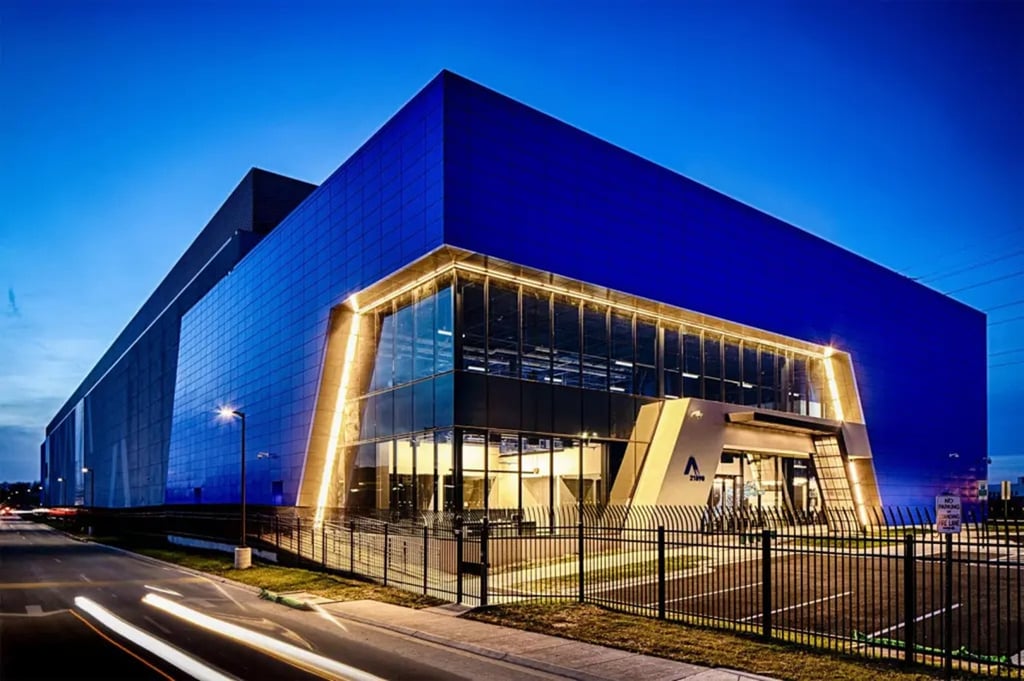Datamation content and product recommendations are
editorially independent. We may make money when you click on links
to our partners.
Learn More
IBM just lost the number one spot on the top 500 supercomputer list to Japan and ARM. You’d think they’d be upset.
But they aren’t because they have a technology called “IBM Bayesian Optimization Technology” that potentially will supercharge any supercomputer. The performance increase is up to a 140x performance boost (I’ll bet you wish your car supercharger did that), and it could be used with any Supercomputer.
This technology is, on paper, a game-changer for Supercomputing and IBM, and the concept could be applied to the entire class of HPC computers, turning many almost instantly into Supercomputers.
Things just got real; let me explain.
The Supercomputer Supercharger
I’m a car guy, and I’m a big fan of blowers which compress the air going into an engine increasing the horsepower. My most impressive car was a GLA-45 AMG, which in its base form puts 221 Horsepower out of a 2.0-liter engine but in its AMG form puts out close to 380 HP.
This performance increase results in an impressive 50% increase in power. Now a blower, be it a supercharger or turbocharger, affects the air coming into the engine, not the engine itself, by compressing that air it also compresses the energy going into the combustion chamber, which then, through the combustion process, develops more power.
The IBM Bayesian Optimization Technology, like a supercharger, deals with the problem going into the supercharger, optimizing it so that the Supercomputer can more efficiently deal with the problem. The projected benefit is a 140x performance boost. Now, in perspective, that would be like taking that 221 Horsepower engine and boosting it to nearly 31K horsepower. That would even make jet cars sit up and take notice (generally, the most powerful are “only” 6,000 horsepower).
I think my knees got a little weak just thinking about that. There is no way you’d survive that. Still, in a Supercomputer, this means a massive increase in the number of jobs the device could handle in a given workday, it means you could take non-Supercomputer servers and boost them to Supercomputer levels. It means that you could create optimized solutions using this technology that would outperform Supercomputers significantly for a fraction of the cost of one of the current offerings.
Applied to IBM’s Summit – currently, number two in the ranking, formerly number one – it would perform in line with Supercomputers we don’t expect until sometime next decade. Hardware costs for this Supercomputer supercharger are expected to be a fraction of the cost of a Supercomputer like a blower costs a fraction of what an engine costs.
Caveats
Now Superchargers on cars have some drawbacks; they stress the engine heavily and can result in catastrophic failures; they heat the incoming air through compression, so you need an intercooler to get rid of that heat, and they can destroy gas mileage.
In contrast, this Supercomputer Supercharger that IBM is talking about should reduce energy cost per job because it makes the solution more efficient, it will result in more loading on the Supercomputer because it can do more work, but given these things are already run nearly 24 hours a day (except when shut down for maintenance) that shouldn’t have an adverse impact on longevity.
The big issue: it won’t work for all problems, but it is tuned to work with the kind of problems Supercomputers are geared to solve. Huge mathematically intensive models used to predict outcomes accurately.
And this technology is in the early phases. Still, Supercomputers, by nature, tend toward the revolutionary and the cutting edge of performance, so this shortcoming isn’t as big an issue as it might have been elsewhere.
Wrapping Up
Supercomputers are used for some of the essential tasks we ask any system to take on. They look for asteroids, the kind that took out the dinosaurs, they are looking for Covid-19 cures (and have found a promising bunch), they model the universe around us so we can better understand it, and they are instrumental in researching problems that could wipe out the planet (like global warming).
IBM’s Bayesian Optimization technology will potentially massively improve the effectiveness not only of their Supercomputers, but potentially, for all HPCs doing Supercomputer-like projects, and that could help us better respond to the next Pandemic and existential threat. That result potentially makes this one of the most critical technologies of the decade, and it’s still early.
-
Huawei’s AI Update: Things Are Moving Faster Than We Think
FEATURE | By Rob Enderle,
December 04, 2020
-
Keeping Machine Learning Algorithms Honest in the ‘Ethics-First’ Era
ARTIFICIAL INTELLIGENCE | By Guest Author,
November 18, 2020
-
Key Trends in Chatbots and RPA
FEATURE | By Guest Author,
November 10, 2020
-
Top 10 AIOps Companies
FEATURE | By Samuel Greengard,
November 05, 2020
-
What is Text Analysis?
ARTIFICIAL INTELLIGENCE | By Guest Author,
November 02, 2020
-
How Intel’s Work With Autonomous Cars Could Redefine General Purpose AI
ARTIFICIAL INTELLIGENCE | By Rob Enderle,
October 29, 2020
-
Dell Technologies World: Weaving Together Human And Machine Interaction For AI And Robotics
ARTIFICIAL INTELLIGENCE | By Rob Enderle,
October 23, 2020
-
The Super Moderator, or How IBM Project Debater Could Save Social Media
FEATURE | By Rob Enderle,
October 16, 2020
-
Top 10 Chatbot Platforms
FEATURE | By Cynthia Harvey,
October 07, 2020
-
Finding a Career Path in AI
ARTIFICIAL INTELLIGENCE | By Guest Author,
October 05, 2020
-
CIOs Discuss the Promise of AI and Data Science
FEATURE | By Guest Author,
September 25, 2020
-
Microsoft Is Building An AI Product That Could Predict The Future
FEATURE | By Rob Enderle,
September 25, 2020
-
Top 10 Machine Learning Companies 2020
FEATURE | By Cynthia Harvey,
September 22, 2020
-
NVIDIA and ARM: Massively Changing The AI Landscape
ARTIFICIAL INTELLIGENCE | By Rob Enderle,
September 18, 2020
-
Continuous Intelligence: Expert Discussion [Video and Podcast]
ARTIFICIAL INTELLIGENCE | By James Maguire,
September 14, 2020
-
Artificial Intelligence: Governance and Ethics [Video]
ARTIFICIAL INTELLIGENCE | By James Maguire,
September 13, 2020
-
IBM Watson At The US Open: Showcasing The Power Of A Mature Enterprise-Class AI
FEATURE | By Rob Enderle,
September 11, 2020
-
Artificial Intelligence: Perception vs. Reality
FEATURE | By James Maguire,
September 09, 2020
-
Anticipating The Coming Wave Of AI Enhanced PCs
FEATURE | By Rob Enderle,
September 05, 2020
-
The Critical Nature Of IBM’s NLP (Natural Language Processing) Effort
ARTIFICIAL INTELLIGENCE | By Rob Enderle,
August 14, 2020
SEE ALL
DATA CENTER ARTICLES







